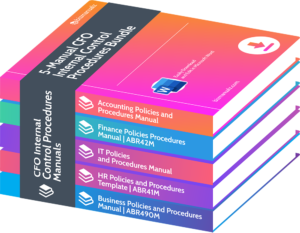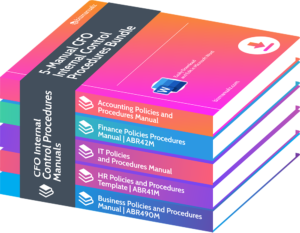What should a CFO Know about Financial Planning and Analysis?

Financial Planning and Analysis is a must-have skill for CFOs. It involves analyzing and forecasting data to make wise decisions. It ensures company stability and growth. Understanding this process is essential for every CFO. They must be able to face financial challenges, predict trends, and use resources efficiently. In today’s ever-changing business world, knowing financial planning and analysis is even more important. What should a CFO Know about Financial Planning and Analysis?
The Role of a CFO in Financial Planning and Analysis
The CFO’s role in Financial Planning and Analysis is key in today’s dynamic financial landscape. They must have a deep understanding of their company’s finances to make informed decisions and maximize performance.
Some core tasks include:
- Strategic Planning – developing long-term plans in line with the company’s objectives.
- Financial Forecasting – using market data, history, and internal info to allocate resources.
- Budgeting – managing funds between departments and meeting targets.
- Performance Analysis – monitoring KPIs and finding areas for improvement or risks.
- Risk Management – creating strategies to protect business interests.
- Decision Support – providing financial data and insights for decision-making.
CFOs should stay up-to-date on emerging tech and trends to drive financial planning and analysis. Automation tools and data analytics can help streamline processes, improve accuracy, and provide timely insights. They should collaborate with finance, operations, marketing, and sales departments for alignment between financial goals and strategies.
A key detail is that it requires knowledge of finance and business operations. CFOs need to not only analyze numbers but also consider the market, industry, and competition. This big-picture approach helps them come up with strategies that lead to long-term success.
An example of this is a major corporation during a financial crisis. The CFO identified risks and used financial analysis to find ways to reduce costs without hurting the company. As a result, the organization stayed afloat while others failed.
The importance of financial planning and analysis can’t be overstated – it’s like juggling flaming swords! Finally, they should continuously develop themselves to stay current with regulatory changes, industry practices, and tech advancements. This will equip them to be agile in a changing business environment.
A proactive CFO can contribute greatly to a company’s success. Their expertise not only affects financial stability but also empowers other departments to reach their goals. With analytical skills and a strategic approach, they are a vital part of effective finance management.
Understanding Financial Planning
Financial planning is a must for any company’s success. It means examining & predicting the financial state of a business, recognizing potential risks & constructing plans to avoid them. CFOs can take wise decisions to stabilize & expand their organization if they understand financial planning.
- Money Goals: Grasping the aims of financial planning is key for CFOs. They should set clear objectives, such as increasing revenue, cutting costs, or optimizing profit.
- Budgeting: CFOs must build comprehensive budgets which follow the organization’s goals. This includes allocating resources sensibly & tracking expenses to avoid overspending.
- Forecasting: Accurate financial forecasting lets CFOs guess future trends & make proactive decisions. By exploring past data & market circumstances, they can foresee probable chances & difficulties.
- Risk Control: Financial planning involves spotting & managing risks which could influence the business’ finances. CFOs must put into action strong risk management strategies to shield against uncertainties.
- Performance Assessment: Checking financial performance regularly is essential for CFOs. This involves analyzing key performance indicators (KPIs) & contrasting actual results with forecasts to discover areas for improvement.
- Strategic Decision-Making: Knowing financial planning equips CFOs to make strategic decisions which match the organization’s long-term objectives. They can use financial data to evaluate investment options or prioritize resource allocation.
CFOs should additionally stay up-to-date with industry advances & modifications in regulatory requirements. By being informed, they can modify their financial planning schemes accordingly & guarantee compliance.
To improve financial planning efficiency, CFOs should think of:
- Embracing Technology: Using advanced software tools can organize financial planning processes, raise accuracy, & offer real-time insights.
- Collaborating with Stakeholders: Involving appropriate stakeholders like department heads & execs in the financial planning process encourages transparency & accountability.
- Continuous Monitoring: Consistently monitoring financial performance allows CFOs to spot any deviations from the plan & take corrective actions promptly.
- Scenario Analysis: Doing scenario analysis helps CFOs assess the likely effect of diverse economic, market, or internal factors on the organization’s finances.
- Building a Skilled Team: Recruiting & developing a skilled finance team with know-how in financial planning guarantees accurate analysis & reliable forecasts.
- Communication Skills: Efficient communication is crucial for CFOs to communicate financial information & plans to various stakeholders, allowing better decision-making.
By knowing financial planning & putting these suggestions into practice, CFOs can properly handle their organization’s finances, dodge risks, & drive sustainable growth.
Analyzing Financial Data
The key components of financial analysis include Liquidity Ratios, Profit Margin, and Return on Assets. Liquidity Ratios measure a company’s ability to pay short-term debts. Calculation is done by dividing Current Assets by Current Liabilities.
Profit Margin calculates each dollar of sales profitability. This is done by dividing Net Income by Net Sales. Return on Assets measures how efficiently assets generate profits, by taking Net Income and dividing it Total Assets. CFOs also look at other data points, such as cash flow, cost structure, and variance analysis. These can help figure out improvement areas, risks, and opportunities for growth.
With past trends and future projections, CFOs can accurately forecast cash flows, anticipate financial needs, and make informed resource allocations. This helps with strategic decision-making. 78% of CFOs agree that integrating operational and financial data is essential for accurate forecasting. Forecasting is like predicting the weather, only the CFO is predicting debt or profits, not rain or sunshine.
Budgeting and Forecasting
Budgeting aids CFOs to set financial goals and apportion resources sagaciously. By gauging revenues, expenditures, and cash flows, it helps to decide the budgetary needs of various departments. Forecasting assists in predicting future financial performance by studying historical data and external factors. This permits CFOs to make informed decisions, detect potential risks or opportunities, and adjust their strategies accordingly.
Through precise budgeting and forecasting, CFOs can keep track of actual performance against specified targets, promoting effective financial control and accountability. These activities necessitate collaboration between different departments to make sure concordance with organizational objectives. They also permit prompt budget revisions when necessary to fit changing business conditions.
Deloitte’s study exposed that 92% of CFOs believe exact budgeting and forecasting is vital for achieving their organizations’ overall performance objectives.
Risk evaluation and mitigation: As CFOs understand that fortune favors the economically prepared, they always have Plan A, Plan B, and a backup plan for when things unexpectedly go ‘Plan OMG!’
Risk Assessment and Mitigation
Here’s a table showing Risk Assessment and Mitigation components:
| Component | Description |
|---|---|
| Identification | Spotting risks within the organization |
| Analysis | Assessing the probability and effect of risks |
| Prioritization | Ranking risks by their level of importance |
| Mitigation Strategies | Taking measures to reduce or eliminate risks |
| Monitoring | Examining and reviewing risk mitigation plans regularly |
It’s essential that monitoring is ongoing. This lets CFOs adjust strategies when new risks come up and check if existing solutions remain effective.
Forbes magazine states that 80% of organizations with great risk assessment and mitigation practices have higher financial growth than their counterparts. Risk management is all about making wise decisions and planning strategically, instead of repeating past errors.
Strategic Planning and Decision Making
Strategic planning and decision making are essential for a CFO. It includes analyzing financial data, evaluating market trends and assessing risk factors to make smart choices. This needs an understanding of the company’s objectives and knowledge of the financial landscape.
By engaging in strategic planning and decision making, a CFO can provide valuable advice to the executive team. They can identify growth opportunities, assess risks, and make sure financial plans align with goals. They must also think about various scenarios and assess their effect on profits, cash flow and financial performance.
To be successful, a CFO should have strong analytical skills to interpret financial data correctly. Great communication abilities are also necessary to collaborate with other stakeholders. By building relationships with other departments and senior management, CFOs can foster teamwork and improve decision-making processes.
An example of the importance of strategic planning and decision making is Company X during an economic downturn. The CFO studied financial indicators and industry trends to create a contingency plan that cut costs but had minimal impact on operations. This allowed Company X to adjust to the market, keeping it afloat during difficult times.
Collaboration with Other Departments
Collaboration with other departments is fundamental for a CFO to handily carry out financial planning and analysis. Here’s why:
| – It encourages communication between various parts of the business. The CFO can get precious insights into their requirements, goals and struggles, by teaming up with other departments. |
| – Working closely with other departments helps in syncing financial plans and analyses with the company’s overall objectives. This way, the CFO can ensure the financial planning bolsters their endeavors and aids in achieving all-round targets. |
| – It also improves accurate forecasting and budgeting. Through collaboration with other departments, the CFO can access important data which assists in creating practical financial forecasts and budgets. This collaboration makes sure that financial plans are founded on dependable information from several operational areas. |
| – Furthermore, collaboration with other departments boosts decision-making processes. When different angles are joined together, it leads to judgements that take into account both financial implications and operational needs. |
For a successful collaboration, the CFO needs to find chances by regularly interfacing with department heads, participating in cross-functional meetings and joining interdepartmental projects. Developing strong relationships based on trust and open communication is the way to go. By involving key stakeholders from various departments in the financial planning process, the CFO can get diverse inputs that lead to more precise analyses and forecasts.
Moreover, harnessing technology like integrated financial planning systems can simplify collaboration by providing a centralized platform for sharing data and insights across departments. Such tools permit real-time updates and enable joint decision-making.
Technology and Tools for Financial Planning and Analysis
Technology and tools are vital to financial planning and analysis. They enable organizations to simplify processes, analyze data better and take informed decisions. By using technology, CFOs can optimize financial planning and analysis, driving growth and profitability.
Below is a table of key technologies and tools CFOs can employ for efficient financial planning and analysis:
| Technology/Tool | Description |
|---|---|
| ERP Systems | Integrated software that manages an organization’s core business processes, such as finance, accounting and operations. |
| BI Tools | Software applications that gather, analyze and visualize data to help organizations gain insights for better decision-making. |
| Predictive Analytics Software | Uses historical data to forecast future trends and outcomes, helping CFOs anticipate potential challenges or opportunities in financial planning. |
| Cloud-based FP&A Solutions | Web-based platforms that allow real-time collaboration, data consolidation and sophisticated modelling for improved FP&A processes. |
Besides these technologies, AI algorithms are used by many organizations for financial planning and analysis. AI-based tools process data efficiently to identify patterns or anomalies that may affect financial performance.
Deloitte’s “CFO Insights” report noted: Companies with advanced analytics capabilities are twice as likely to be top performers in terms of revenue growth.
This highlights the importance of using technology-driven tools for superior FP&A results.
Conclusion: Financial Planning and Analysis may be complex. But being a CFO requires you to be the master of numbers, the ruler of budgets and the jester of spreadsheets – all while keeping a straight face.
CFO Know about Financial Planning and Analysis
Financial planning and analysis are a must for any successful organization. CFOs must be familiar with topics such as forecasting, budgeting, variance analysis, and financial modeling. Accurate, timely financial information is vital for decision-making.
However, an important element not yet discussed is the integration of financial planning and analysis with strategic planning. Financial planning concentrates on numbers, while strategic planning focuses on the grand scheme, setting long-term goals. When these two processes are aligned, CFOs can ensure that financial objectives match the company’s overall strategic direction.
Deloitte conducted a study which found that companies with integrated enterprise performance management systems (containing financial planning and analysis) had higher profits and greater shareholder value creation than their counterparts.
Frequently Asked Questions
FAQs about What a CFO Should Know about Financial Planning and Analysis:
1. What is the purpose of financial planning and analysis (FP&A)?
Financial planning and analysis is a process that helps organizations analyze their financial performance and make informed decisions. The purpose is to forecast future financial outcomes, identify areas for improvement, and create strategies to achieve financial goals.
2. What are the key responsibilities of a CFO in financial planning and analysis?
A CFO is responsible for overseeing financial planning and analysis within an organization. Their key responsibilities include developing financial forecasts, analyzing financial statements, evaluating financial risks and opportunities, and providing strategic recommendations to the executive team.
3. How does financial planning and analysis contribute to business performance?
Financial planning and analysis play a crucial role in business performance by providing insights into the financial health of the organization. It helps identify cost-saving opportunities, revenue growth potential, and areas for improvement, enabling the CFO to make data-driven decisions that enhance overall business performance.
4. What tools and techniques are commonly used in financial planning and analysis?
Various tools and techniques are used in financial planning and analysis, including financial modeling, data analysis software, budgeting software, and forecasting methods. These tools help CFOs analyze historical data, create financial projections, and perform scenario analysis to assess potential outcomes.
5. How does financial planning and analysis support strategic decision-making?
Financial planning and analysis provide the necessary data and insights to support strategic decision-making. By analyzing financial performance and trends, CFOs can assess the financial implications of different strategic options, evaluate risks, and determine the financial feasibility of proposed initiatives.
6. What skills and qualifications are essential for a CFO in financial planning and analysis?
A CFO in financial planning and analysis should possess strong analytical skills, financial expertise, and business acumen. They should have a deep understanding of financial systems and tools, proficiency in financial analysis techniques, and the ability to communicate complex financial information to non-financial stakeholders.
















Leave a Reply